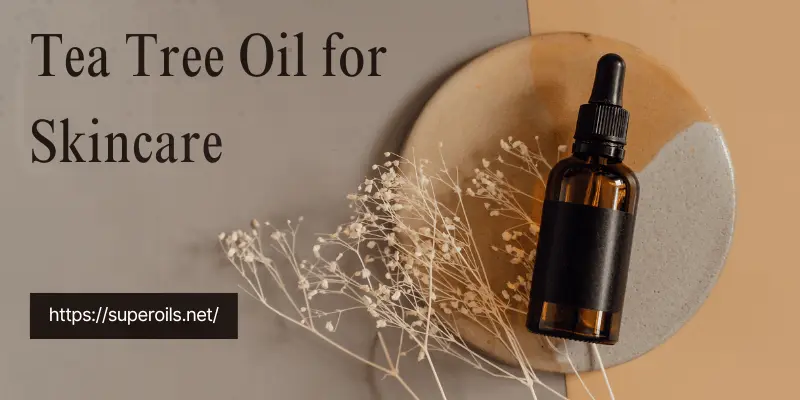Tea Tree Oil for Skin: Top Benefits & Uses
Published: 9 Jan 2025
Ever wondered why so many skincare products boast tea tree oil as a key ingredient? The answer lies in its amazing ability to fight bacteria, soothe irritation, and improve skin texture naturally.
Benefits of Tea Tree Oil for Skin
Tea tree oil offers numerous benefits for skin care, making it a must-have natural remedy. Its antibacterial and anti-inflammatory properties help address various skin concerns effectively.
List of Benefits:
- Treats acne and reduces inflammation.
- Soothes irritated or itchy skin.
- Fights fungal infections like athlete’s foot.
- Reduces excess oil production.
- Helps fade blemishes and scars.
- Acts as a natural antiseptic for minor cuts.
- Promotes smoother and clearer skin.
If you’re interested in exploring more natural oils that benefit the skin, check out this Comprehensive Skincare Oils Guide for additional insights.

How to Use Tea Tree Oil for Skin
Tea tree oil is effective but requires proper usage to avoid irritation. Here’s how to use it:
- Dilute the Oil: Mix 1-2 drops of tea tree oil with a tablespoon of a carrier oil (e.g., coconut or jojoba oil).
- Perform a Patch Test: Apply a small amount to your forearm and wait 24 hours to check for any reaction.
- Spot Treatment: Dab the diluted oil directly onto acne or blemishes using a cotton swab.
- DIY Face Mask: Combine diluted tea tree oil with aloe vera gel or honey for a soothing mask.
- As a Toner: Add a few drops to distilled water, shake well, and apply with a cotton pad.
- Avoid Sensitive Areas: Keep it away from eyes, mouth, and open wounds.
Precautions and Side Effects
Precautions and side effects refer to the necessary steps and potential risks associated with using tea tree oil for skincare. While tea tree oil is effective, it must be used properly to avoid adverse reactions. Undiluted application can cause redness, irritation, or dryness, especially for sensitive skin types.
To minimize risks, it’s essential to dilute tea tree oil with a carrier oil before use. Performing a patch test on a small area of skin helps identify potential allergic reactions. Users should avoid applying it near the eyes, mouth, or open wounds to prevent discomfort or harm.
Tips for Using Tea Tree Oil Effectively
Tips for using tea tree oil effectively focus on ensuring safe and optimal results. These include diluting the oil with a carrier oil, performing a patch test before use, and applying it only to clean, dry skin. Proper storage and avoiding sensitive areas are also key to maximizing its benefits.
Conclusion
So guys, in this article, we’ve covered tea tree oil for skin in detail. Personally, I highly recommend trying tea tree oil if you’re looking for a natural and effective way to tackle acne or soothe irritated skin. Start with small amounts, always dilute it, and see the difference it can make. Don’t forget to share your experience or ask any questions in the comments below!
Tea tree oil can be harsh on sensitive skin if not diluted properly. Always dilute it with a carrier oil and do a patch test first. If irritation occurs, stop use immediately and consult a dermatologist.
Yes, but it’s best to start with once or twice a day and monitor how your skin reacts. Overuse can lead to dryness or irritation. Always follow up with a good moisturizer.
If tea tree oil gets into your eyes, rinse them with plenty of water immediately. Avoid rubbing your eyes, as it can worsen the irritation. If irritation continues, seek medical attention.
Tea tree oil may help fade blemishes due to its healing and anti-inflammatory properties. It can improve the appearance of scars over time, but results may vary. Consistent use is key for better results.
Yes, tea tree oil can be added to a DIY face mask for acne treatment. Mix it with ingredients like honey or aloe vera for a soothing and antibacterial effect. Always dilute the oil before applying it to your face.
Tea tree oil works well for most skin types, especially oily and acne-prone skin. If you have dry or sensitive skin, be sure to dilute it well and test for irritation. Always adjust based on your skin’s response.
Yes, tea tree oil is highly effective in treating acne due to its antibacterial properties. It helps reduce acne-causing bacteria and inflammation. For best results, apply diluted tea tree oil directly to acne spots.
